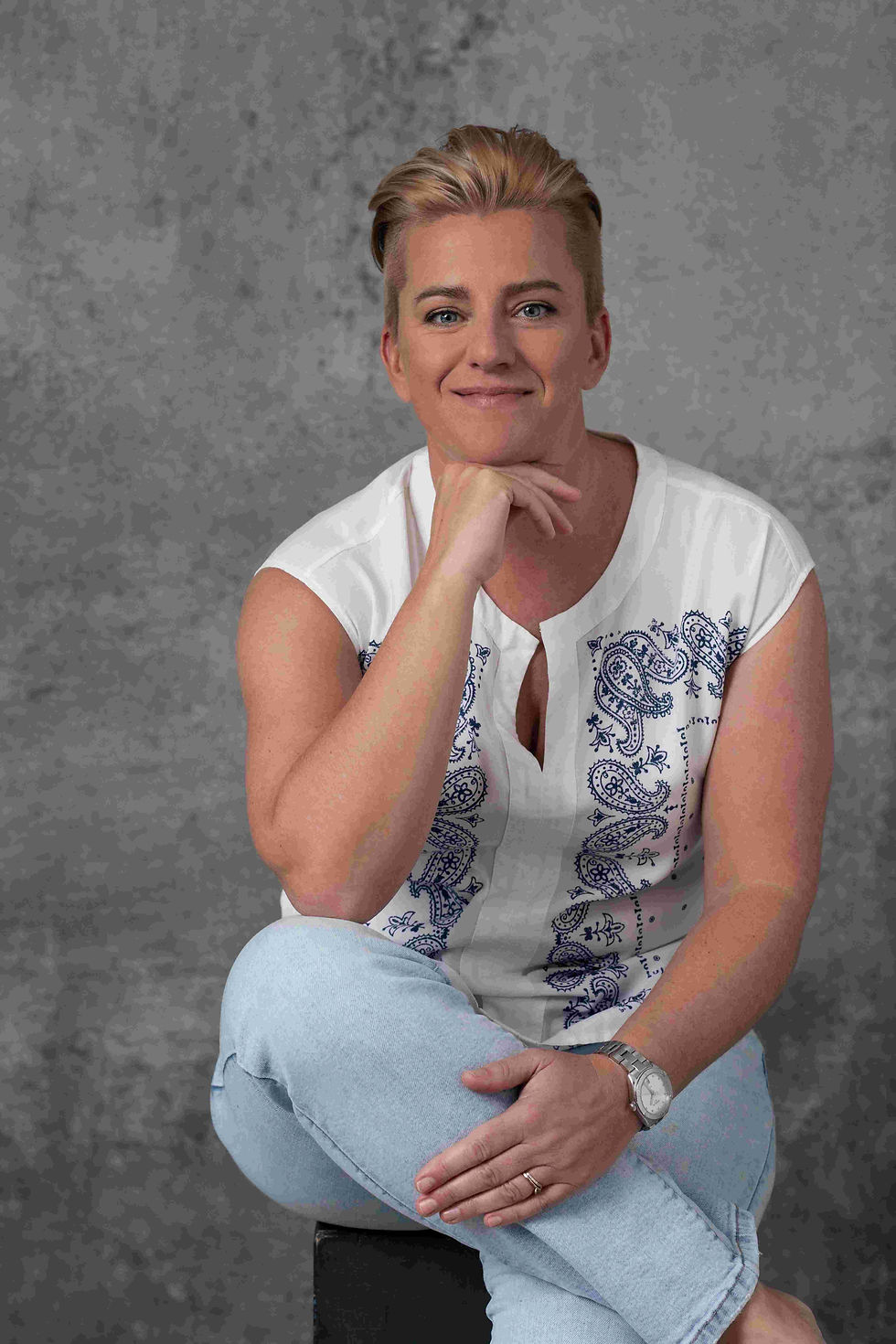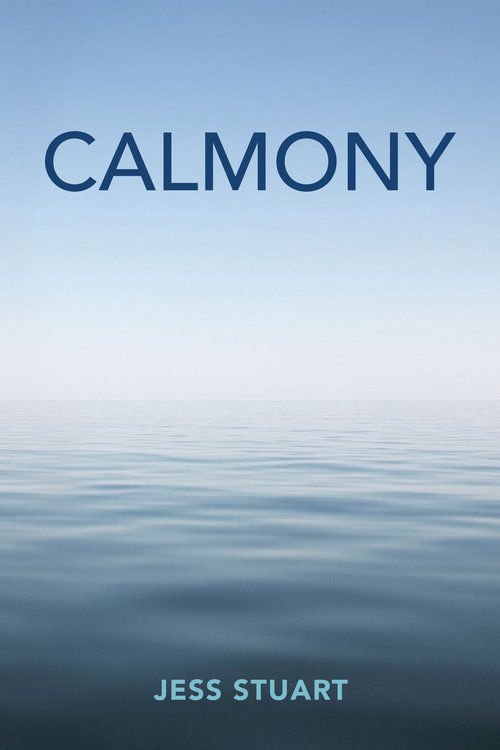
Author, coach and international speaker who lives on Waiheke Island. Jess has a passion for unlocking the potential of people to be their best and put the being back into human-being.
A brush with burnout in her corporate career led Jess across the world to train with Buddhist monks and nuns. A decade later, after writing eight books and running her own successful business she shares what she knows about mind-set, contentment and a life by design to help create happy humans and a better world.
Jess talks to NZ Booklovers about Calmony.
Tell us a little about your new book, Calmony.
A guidebook for living a more present, connected, and purposeful life. Embark on your own journey of self-discovery and transformation, unlocking the keys to lasting happiness and fulfilment.
In a world of progress and wealth, mental health struggles and burnout persist, leaving us full but not fulfilled. Our relentless pursuit of happiness seems to lead us further from the goal.
Using ancient wisdom to solve our modern problems I believe happy humans make a better world. This book offers a roadmap to navigate modern complexities and reconnect with what truly matters.

Can you tell us about the word ‘Calmony’ and its meaning?
Calmony describes the harmony that arises from complete contentment. The wholeness when everything feels right, our lives have a sense of meaning, we know who we are and maintain inner peace and lasting happiness regardless of external circumstances.
Calmony, put most simply, describes the harmony that arises from an unmoveable contentment within, we might call it inner peace. It’s the wholeness when everything feels right, our lives have a sense of meaning, we know who we are and maintain inner peace regardless of external circumstances.
It’s being connected to who we are, each other and the present moment. It’s living a life full of meaning and purpose and appreciating everything we have so not needing more. It’s being in control of our minds, able to regulate our emotions and remaining equanimous, even when there’s chaos around us. It’s living a life true to ourselves and being fulfilled.
What inspired you to write this book?
In a world moving faster than we’re built for, we’ve lost touch with what it means to be human. We’ve become human doings, chasing more, burning out, and disconnecting from what truly matters.
We stand at the crossroads of rapid technological advancement, shifting workplace dynamics, and a future that feels more uncertain each day. With burnout on the rise, the evolution of AI, economic instability, and global crises—from climate change to political upheaval—we find ourselves searching for something more, something deeper, something that unites us in a world that seems more divided than ever.
We've mistaken busyness for purpose, external validation for meaning, and digital connectivity for real human connection. In the rush to live faster, we’ve forgotten how to live well.
What research was involved?
A combination of my own lived experience, that of the hundreds of people I’ve coached over the last 15 years as well as a decade studying with Buddhist monks and nuns. This book became a way of combining ancient wisdom with the people psychology education I got through my prior career and leadership development work in order to help us solve our modern problems in this current, uncertain, climate.
The research into gratitude for the art of appreciation chapter was one of my favourites as there’s so much data available in this space now and I’ve always been fascinated with how we can mater our mindset.
I was mind-blown by the research into connection, the loneliness epidemic and our social media addiction during the research for this book, and there are some sobering statistics included as a result.
What was your routine or process when writing this book?
This is book number 8 for me, so I’ve learned a lot and tweaked the process each time to get it down to a fine art. I’m lucky to have built a fabulous local team over this time too that help with everything from the editing, printing, promotion and distribution. I find it easier to write when I go on retreat and am away from distractions. These days that’s often an Airbnb in Raglan where I can get some surfing in too.
If a soundtrack were made to accompany this book, name a song or two you would include.
I reckon "Feeling Good" – Nina Simone. A soulful track for renewal and contentment, I think the serene yet powerful vocals encourage a positive and calm outlook.
And probably "Imagine" – John Lennon. A global anthem for peace, with its hopeful lyrics, perfect for a peaceful mindset.
What did you enjoy the most about writing Calmony?
This books feels like it’s not just what I know but it’s who I am and that’s made it exciting to write. I also think it’ll help people navigate the current climate we find ourselves in and make a better world.
I always love the process of writing a book and making sense of the topic as it goes onto the page. I also find there are always aha moments when the stories, research and text come together, which leads to more learning for the author, too!
What do you hope readers will take away from reading?
It is my hope that readers are able to take away the following from the book:
· Create a life by design and experience the freedom of a life well-lived
· Uncover your essence to live a life of meaning and purpose
· Master the art of appreciation so you can enjoy what you have and not be stuck in the pursuit of more
· Find time to reconnect to the things that truly matter
· Simplify your life to free up space and make the most of your moments
· Discover the happiness that arises from compassion towards others
· Become more present, connected and calm
You do a lot of speaking events. What should people expect if they come to one of your sessions?
I love speaking at conferences and events, people often say it’s energising, inspiring and uplifting whilst always practical so walking away with strategies and tips to implement what you learn is so important, as well as the motivation and inspiration to do something with it!
An inspiring speaker can hold an audiences attention without the need to shout, swear or scream from stage. There’s a connection with the audience that goes much deeper and a subtle shift in mindset based on what they’ve heard and the way it’s made them feel. This is what I love most about the speaking work I do.
What is the favourite book you have read so far this year and why?
Kokoro by Beth Kempton. A beautiful journey through Japan and her life events and a life well lived, whilst giving us insight into how ancient wisdom solves modern problems – one of my favourite things to learn about.
What’s next on the agenda for you?
I’m currently involved in a nationwide tour with the new book followed by a holiday and a rest over the summer!
